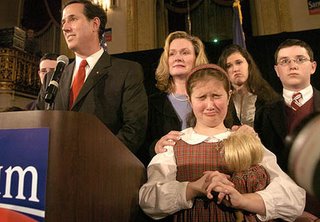Asher's teacher gave us this handout regarding books that are good for infants and toddlers.
For babies look for books with:
• few words per page
• familiar, recognizable objects
• minimal story, if at all
For babies who will sit and listen, and for toddlers:
• books featuring rhyme and/or rhythm
• books based on a repeated refrain or pattern
Photographs of familiar thingsDorling Kindersley (DK) is the premier publisher of this type of book. Some of their books have too many things on one page for this age, so choose carefully. A number are board books. All are sturdy and hold up well.
Another series is the See How They Grow books, which show pictures of animals at different stages of life – the library system has a number of these.
For older toddlers, see the Eye Opener series, which focuses on a particular category of object or animal (trains, boats, small animals, etc.).
NOTE: These are great for encouraging your toddler to “read” to you!!
Pictures (drawings) of familiar thingsFor older toddlers, usually. Animals, tools, construction equipment, etc. You’ll have to see what style of illustration seems to hold your child’s attention. Generally, the stronger the lines and the bolder the colors, the better.
NOTE: As above, encourage your toddler to read these to you.
“Interactive” books Lift-the-flap books: Dear Zoo, Nicky’s Noisy Night, Here Comes a Truck, etc
* You might want to keep these for “special” (i.e., only you can reach them).
Tactile books: Pat the Bunny, etc.
Pages with holes in them for turning easily: Moo, Moo, Peekaboo, etc.
Find-the _______ books: Have You Seen My Duckling? etc.
There are always new variations on these. Ask bookstore owners to show them to you.
I would suggest allowing your child free access to these (put them in a basket or on a shelf that s/he can reach; rotate them to maintain interest.
Books illustrating familiar songsGaldone, Over in the Meadow
Paparone, Five Little Ducks
Books featuring rhyme and/or strong rhythmic patternsFor infants and younger toddlers:
Good Night, Moon
Time for Bed
Brown Bear, Brown Bear, What Do You See?
Polar Bear, Polar Bear, What Do You Hear?
Mora, Listen to the Desert/Oye al Desierto (in English/Spanish)
For older toddlers:
Carlstrom, Jesse Bear, What Will You Wear?
London, Fireflies, Fireflies, Light My Way
Mahy, Seventeen Kings and Forty-Two Elephants
Books involving repetition – theme and variationFor infants and younger toddlers:
Williams, More, More More! Said the Baby
Goodnight, Moon, Brown Bear, Polar Bear, and Jesse Bear books (above)
For older toddlers:
Brown, The Runaway Bunny (also a story)
Carle, Have You Seen My Cat?
some older toddlers will like Aardema’s Bringing the Rain to Kapiti Plain
Books involving language playFor younger toddlers on up:
Martin/Archambault, Chicka-Chicka-Boom-Boom
Degen, Jamberry
For older toddlers on up:
Pomerantz, Piggy in the Puddle
Mosel, Tikki Tikki Tembo
Simple StoriesFor younger toddlers:
Berger, Grandfather Twilight
Carle, The Very Hungry Caterpillar (also interactive)
the Carl books (no text – you have to tell the story by commenting on the pictures)
Hughes, the Max books
For older toddlers and up:
Owl Babies
Mazer, Salamander Room
Trafuri, The Biggest Boy
Hughes, the Alfie books (Alfie is a great problem-solver)
Bread and Jam for Francis
 Houses in Australia and Sweden.
Houses in Australia and Sweden. 














